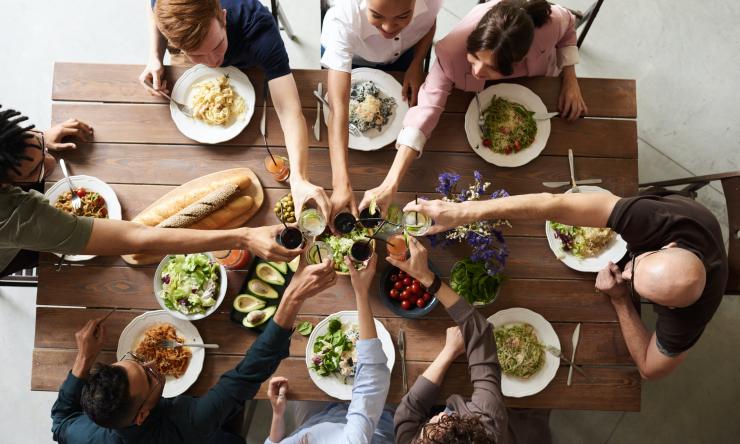Knock the rust off your social skills after pandemic setbacks
For many people, the lack of face-to-face social interactions during the COVID-19 pandemic caused regular social skills to get rusty. Dr. Eric Storch, professor and vice chair in the Menninger Department of Psychiatry and Behavioral Sciences, explains why in-person interaction is important for social development and how to exercise your social muscles.
“Face-to-face interaction is key for developing social skills,” Storch said. “It allows someone to practice who they are and get pretty immediate feedback. That helps us learn how to effectively navigate the world and interpersonal relationships.”
Because in-person events and interactions were limited during the pandemic, people missed out on these opportunities to develop social skills. While schools held classes remotely, children lost important time learning how to effectively relate with their peers and engage with authority figures like teachers.
“Most children will be able to make up for that lost time, but children who were already at risk for socialization, behavioral and education challenges are now at risk of falling even further behind,” Storch said.
One group that may have welcomed the opportunity for more limited social interaction during the pandemic was introverts. However, Storch warns that introversion driven by anxiety and a desire to avoid triggers in social interactions can be detrimental. He encourages introverts not to let anxiety prevent them from reaching out to others and living their life consistent with their values. Gradually and systematically approaching triggers to learn that feared outcomes do not happen (or are not as bad as anticipated) can be one helpful way of re-engaging with a values lifestyle.
For some people, the pandemic may have permanently changed some personal interactions, such as those who shifted to fully remote or hybrid work. Many people shifted to more informal communication methods, which has both pros and cons.
“The pandemic has made us more reliant on technology and virtual communication, which has made us more efficient in some ways,” Storch said. “But the negative with virtual communication is that sometimes we’re not getting the same level of gratification that we would get from in-person interactions. It can limit opportunities to feel connected. If someone feels this way, purposively engaging in activities with others can be one helpful approach.”
From confrontations on airplanes to political arguments, many have noticed an increasingly hostile social environment in the past few years. During the pandemic, people were able to focus more on their own ideas without hearing from outside perspectives, Storch said. Some people may experience more difficulty when dealing with others who have different opinions than their own. Storch stressed that it is possible to get along with people of differing points of view if you proceed with patience and understanding.
“Know your audience and appropriately engage with them,” Storch said. “Be mindful that people are complex. Everyone may not share the same perspective, and someone may have a history or background that you don’t know about. Remember that you may disagree with someone on one topic, but may agree with them on several other topics. Try to hear someone and not judge them for what they are saying.”










